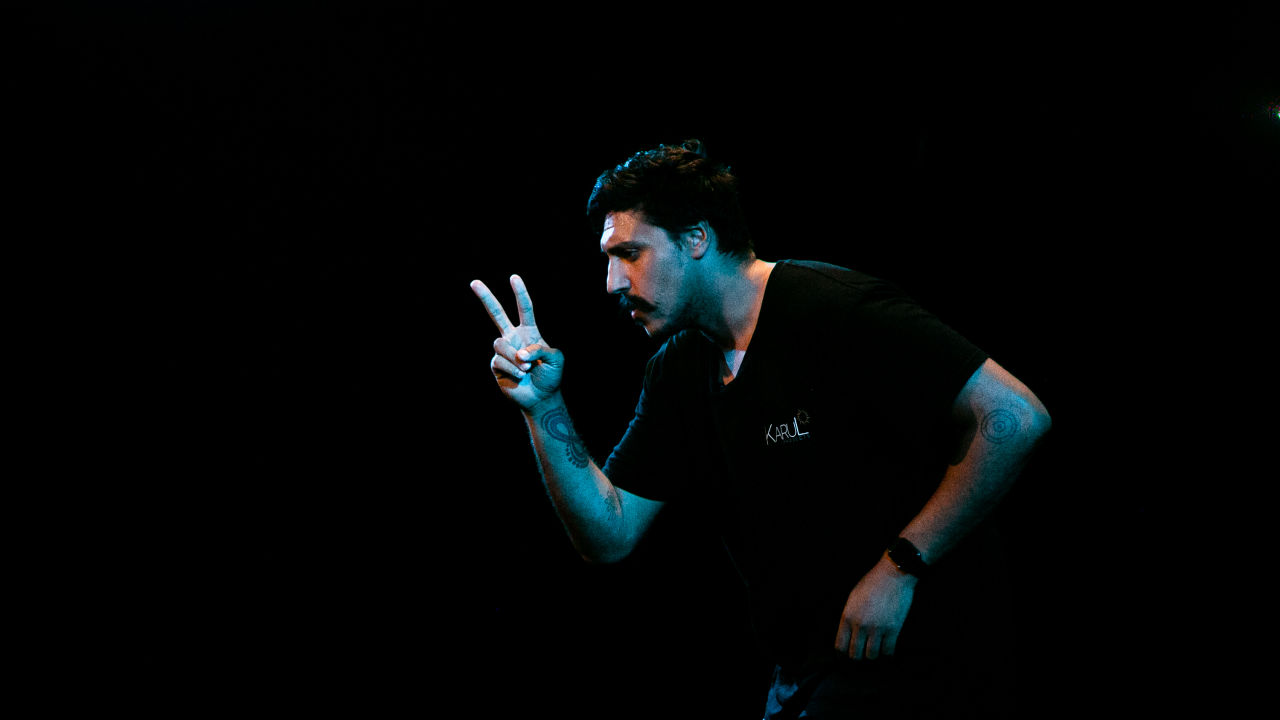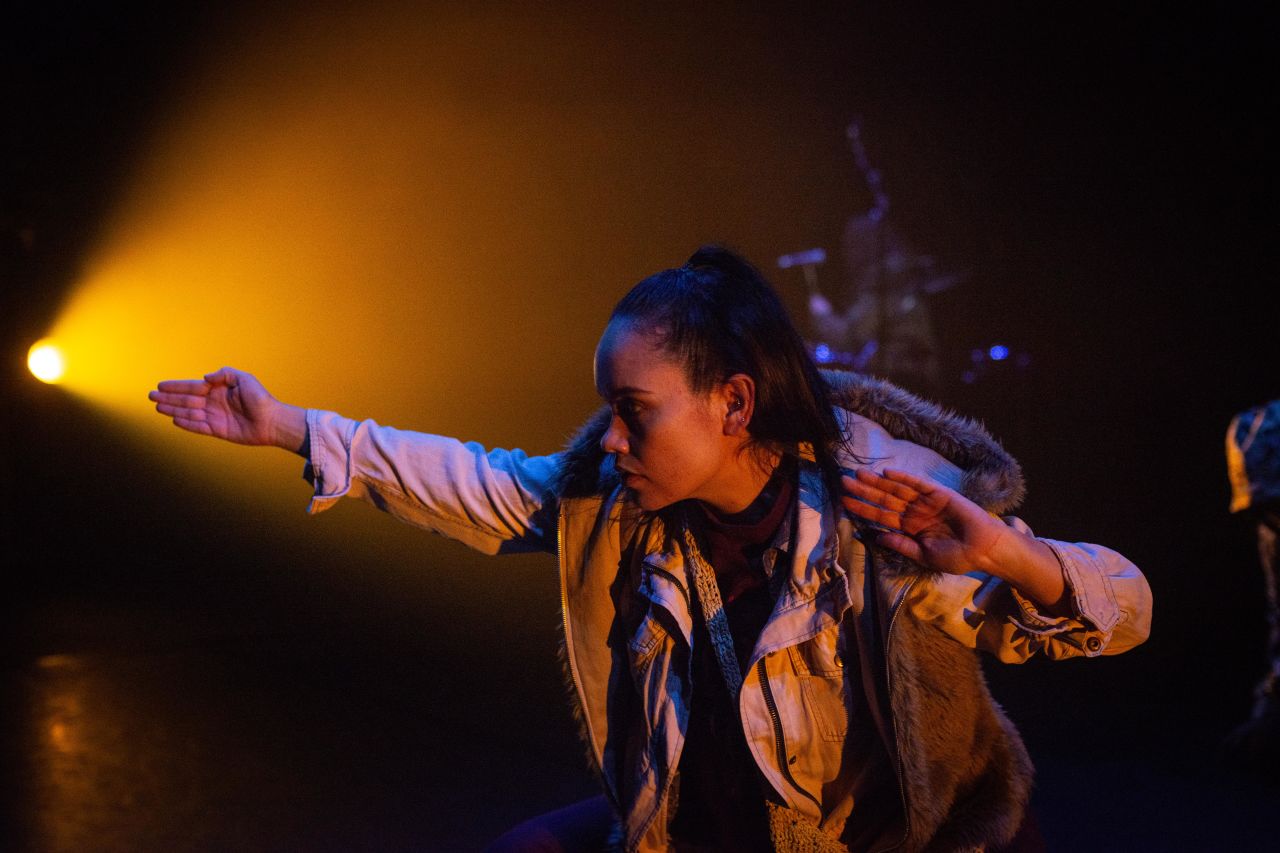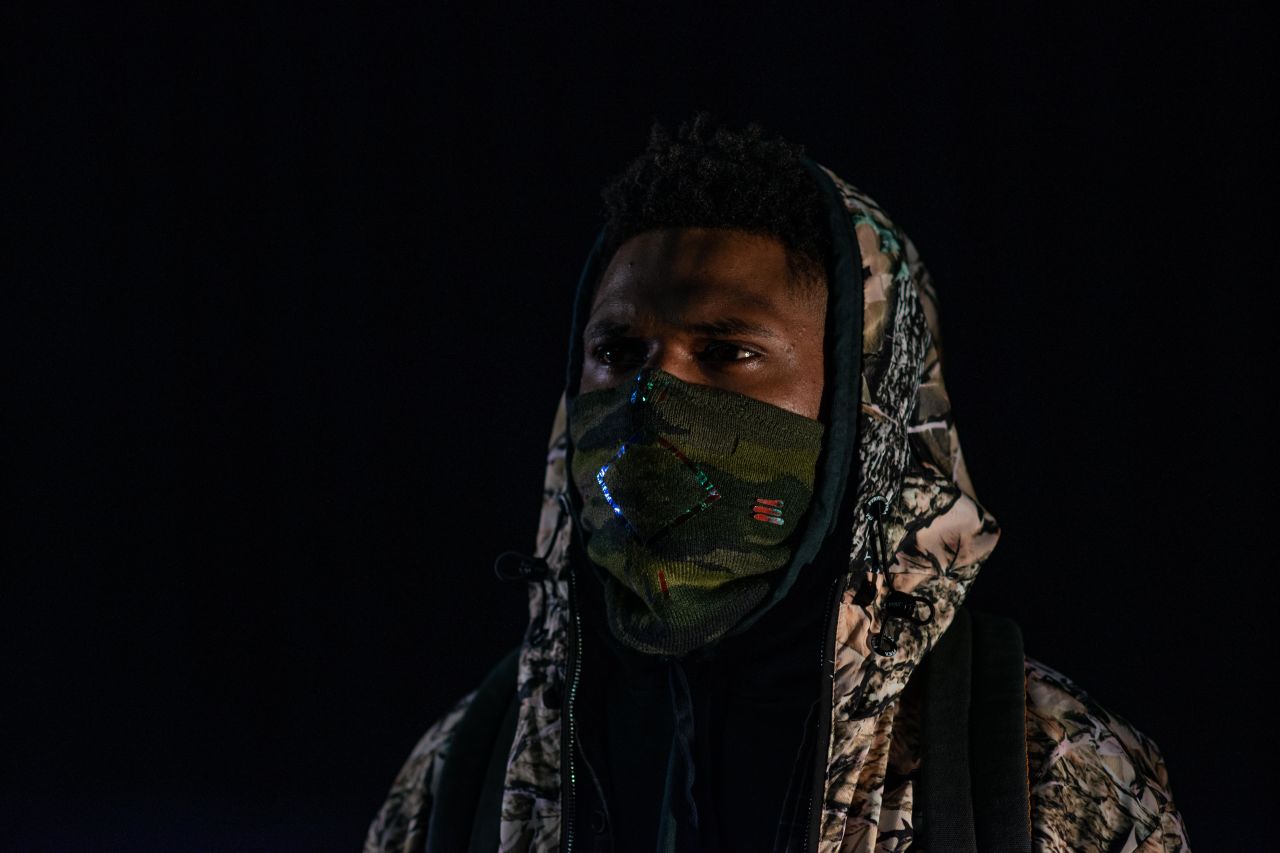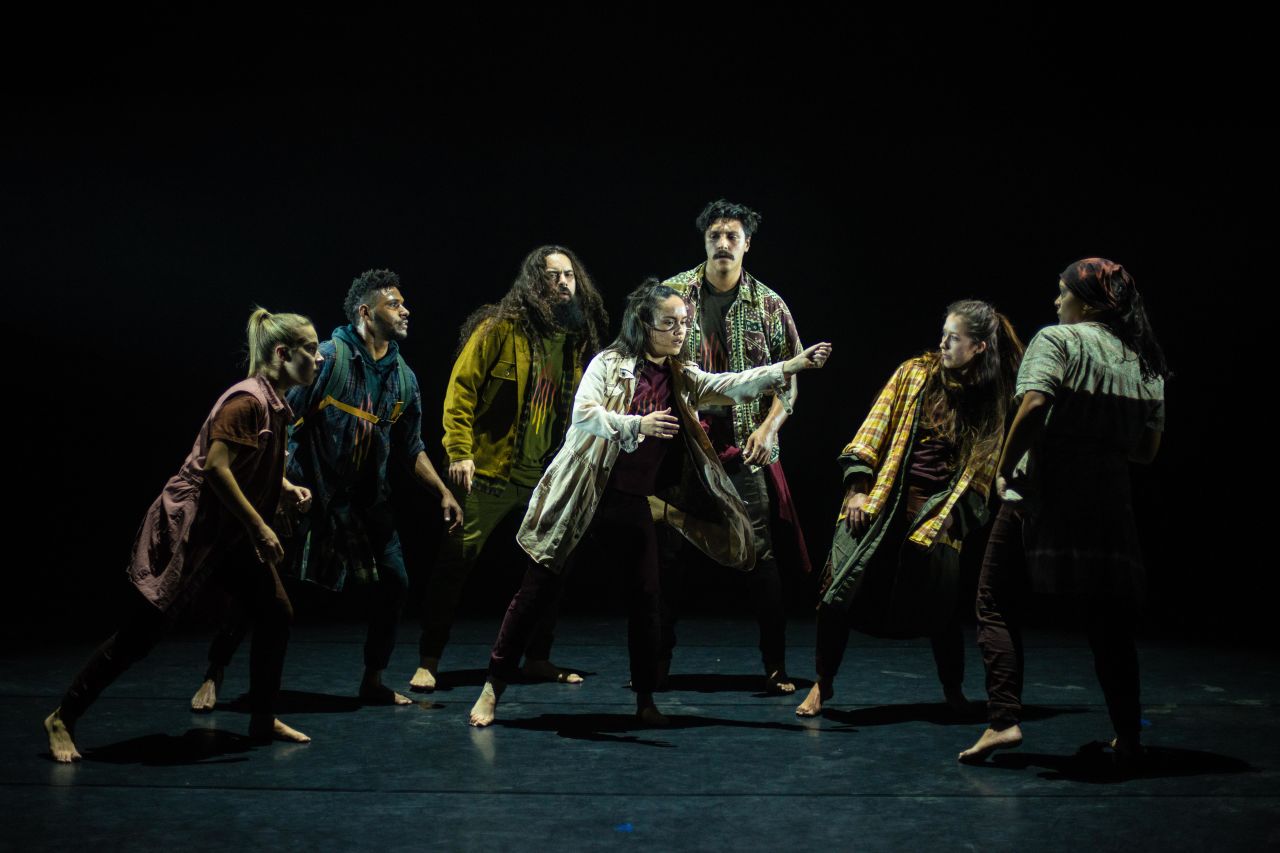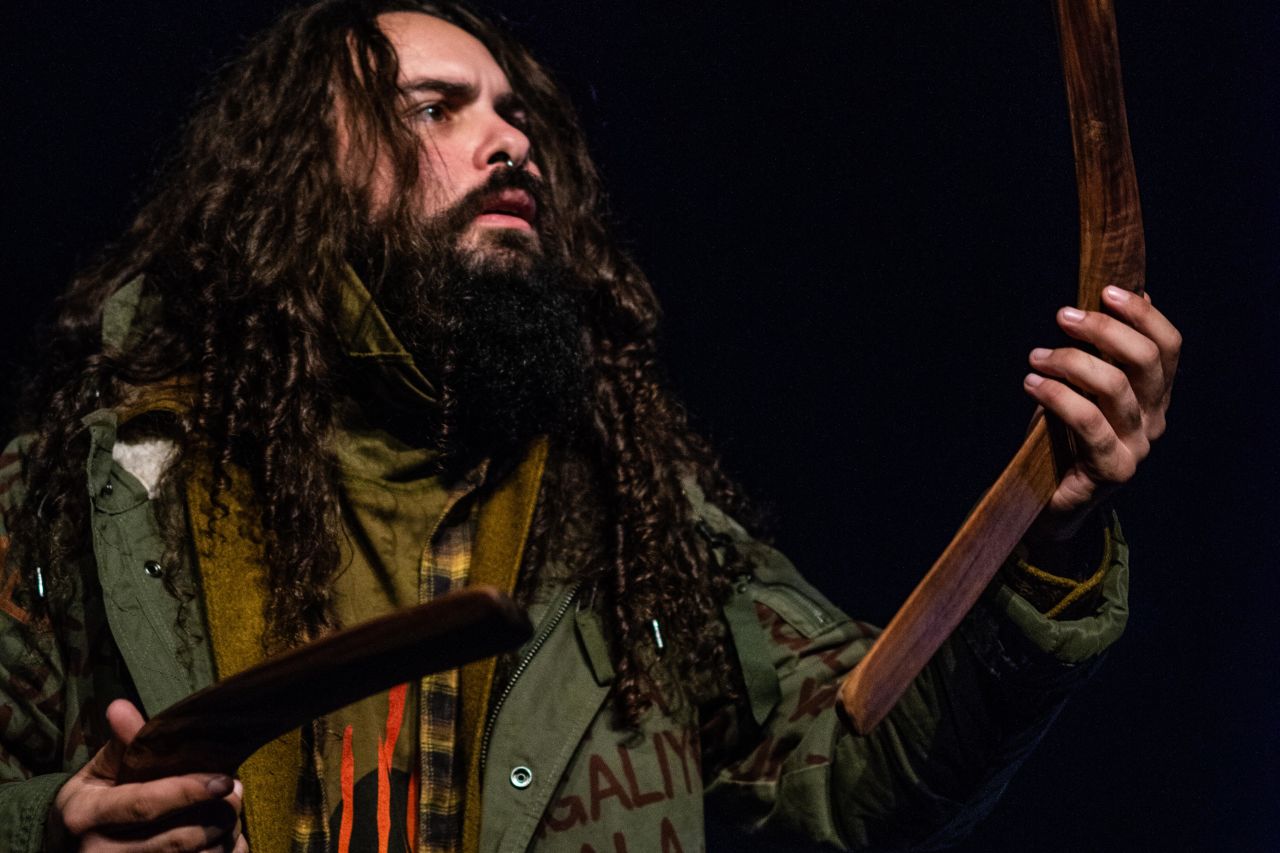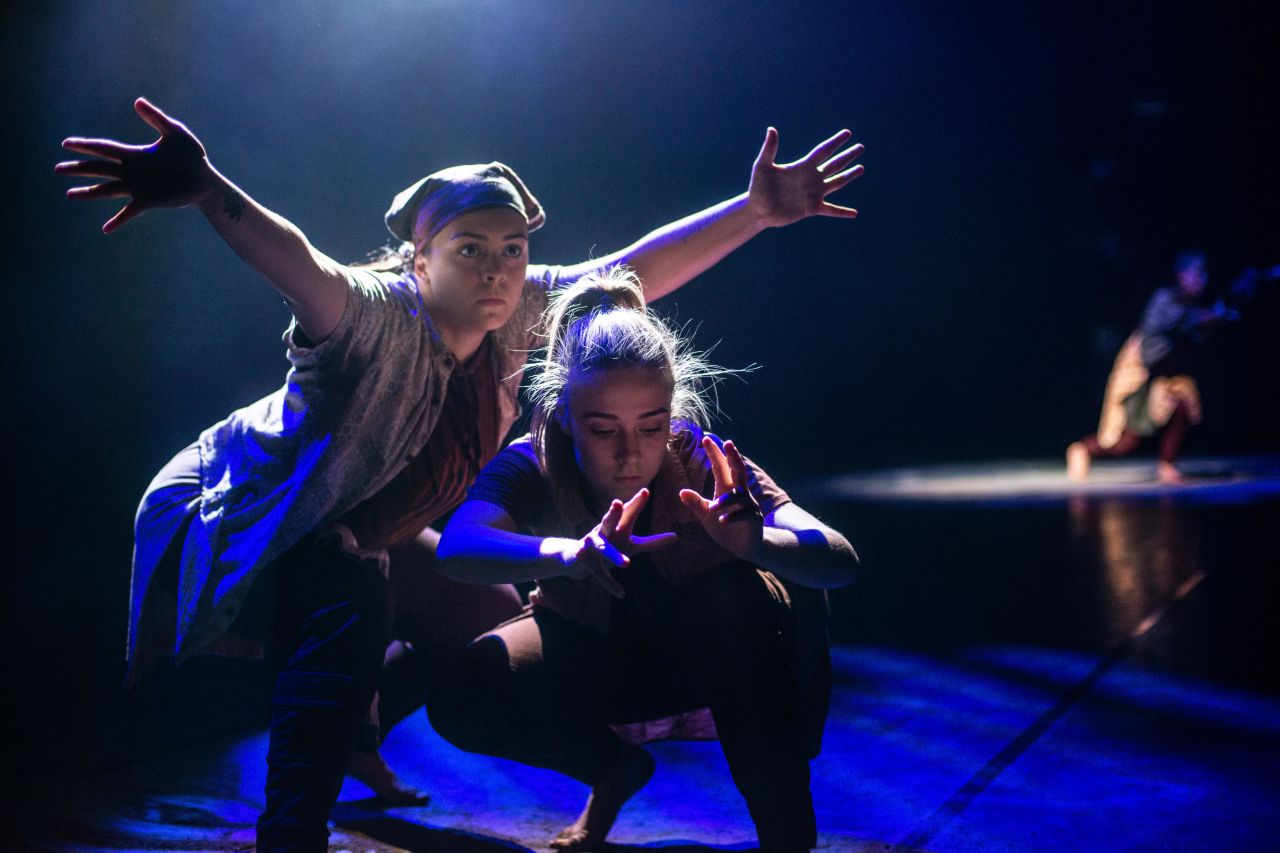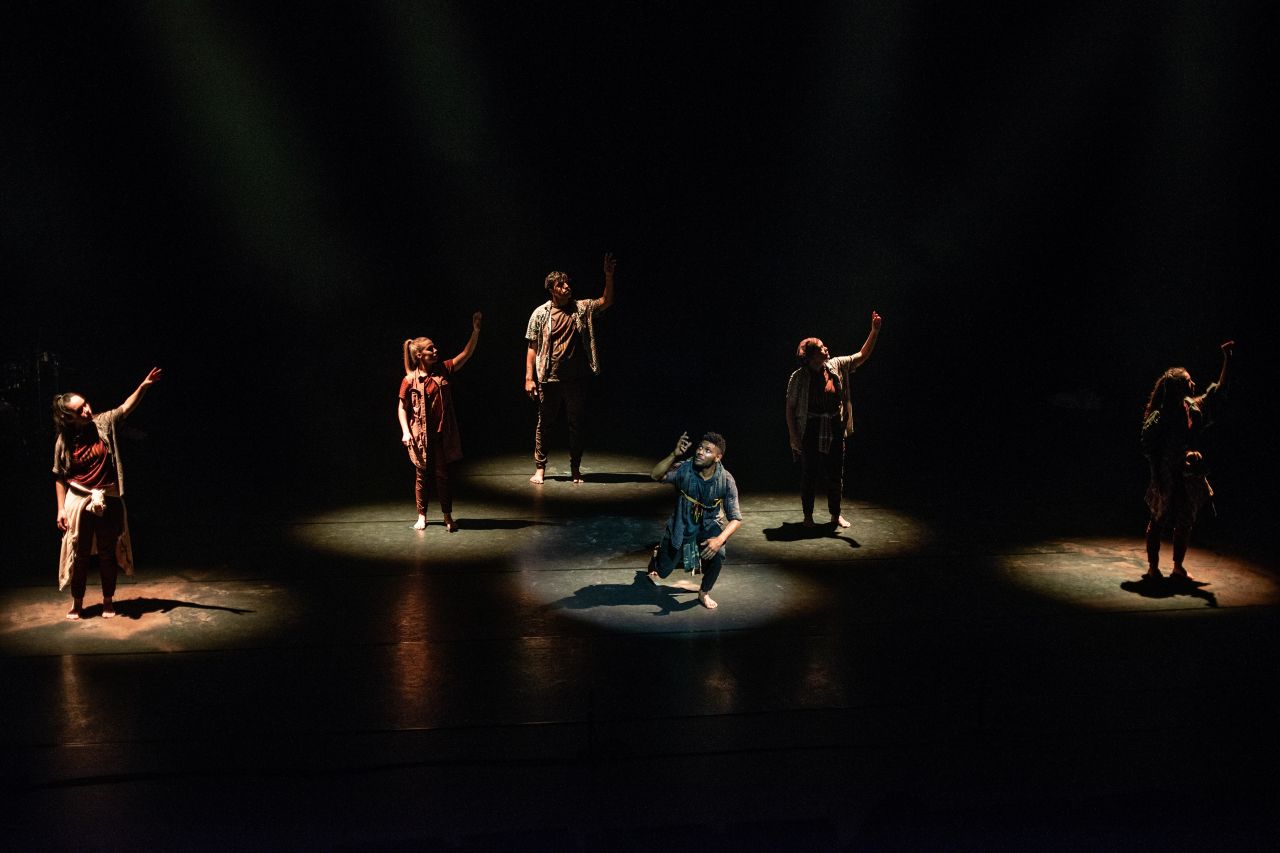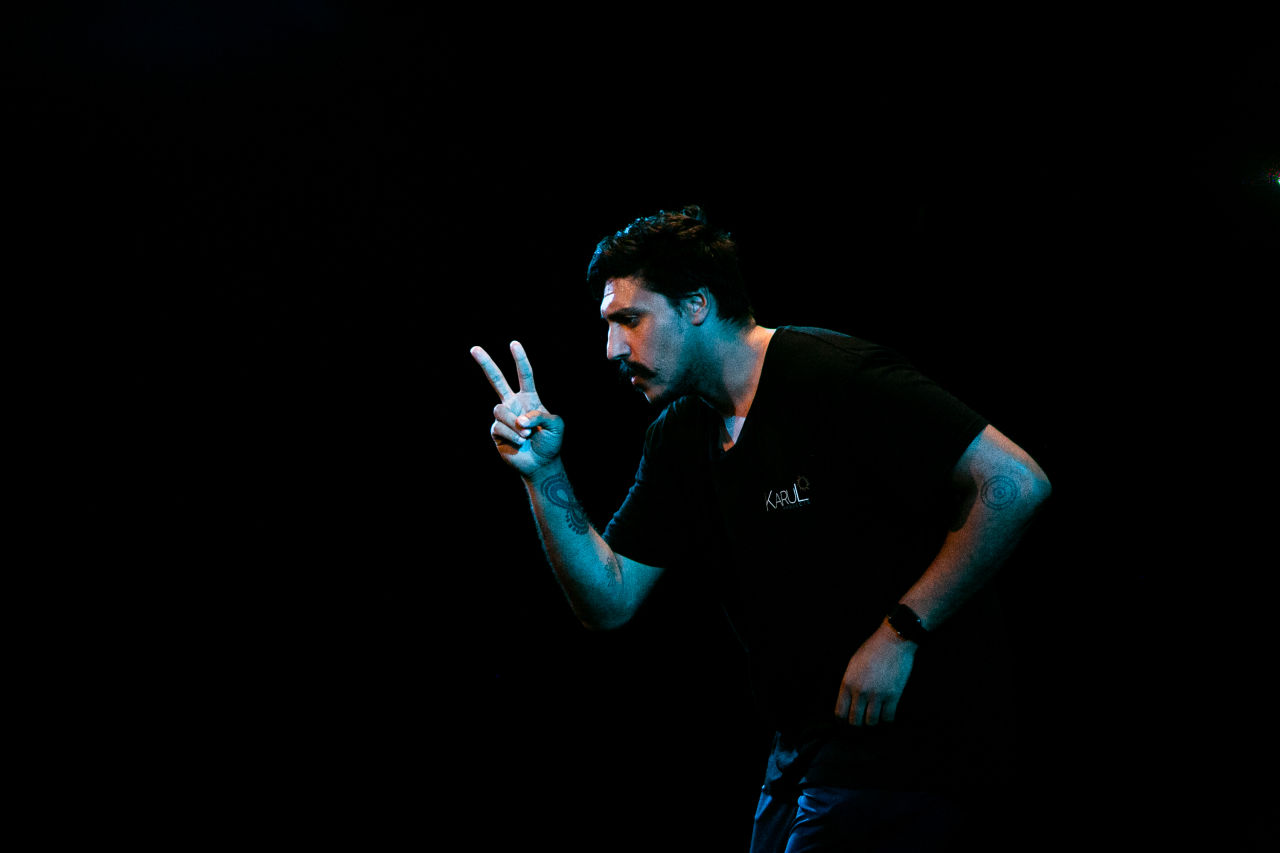Review by Ellen van Neervan
‘Stop the silence!’ is the message of Thomas E.S. Kelly’s Silence, which made its impressive world premiere in Meanjin at Brisbane Festival on Thursday the 10th of September.
Earlier that morning, community received the heartbreaking news that there had been a death in custody in the city’s watchhouse. My first thought was: ‘When? When will this stop happening to our people? When will Black Lives Matter?’ At the wake of the news, I did not feel like leaving the house and entering the city. I’m glad I did; seeing Silence in the theatre of Brisbane Powerhouse full with many of Meanjin’s First Nations community members was respite for the soul in these challenging times. The crowd experienced a connection, a gathering and a sing-up of the spirits.
Thomas E.S Kelly is a Bundjalung-Yugambeh, Wiradjuri and Ni-Vanuatu dancer and choreographer living on Country in the Gold Coast. He started up Karul Projects (from a Yugambeh word meaning ‘everything’) with his partner Taree Sansbury, who is also one of the performers in the show. Silence began through a BlakDance residency in 2018. Meanjin-based Indigenous dance company BlakDance are the producers of the show.
High intensity dance meets live percussion by local legend Jhindu-Pedro, son of Bunna Lawrie from Coloured Stone. The dancers begin the performance shroud in heavy brown-coloured layers against a dark backdrop giving the show an apocalyptic feel. As the layers peel off, the stories unfold.
With symbolism heavily steeped in land rights and Treaty, the show explores what a 250+ year-long denial of meaningful listening to First Nations people has done to the psyche of the people and land. Brown feet kick up sand, earth, dirt and dust. The sand seeps through brown fingers as it always has. Always was, always will be.
In choir formation, the performers sing the Australian anthem in its Yugambeh interpretation, as it has been sung for the last few years during sporting activities on Yugambeh land. The recital is not without a sprinkle of irony, after all, what is a national anthem for a nation state that is an illegal occupation? The performers move into enacting the theatre of footy with a possum skin ball—symbolising sport was not brought here by the invaders. They end the footy scene holding up shirts and pointing to their exposed skin, Nicky Winmar style. We are proud. We are still here. We will not be silenced.
